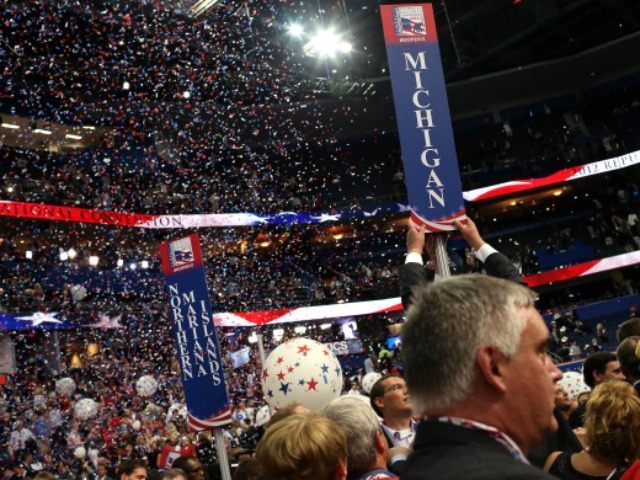The various GOP candidates have won around 1,400 delegates, and there are 1,000 more to win in Pennsylvania, California and other states, but the people who will actually serve as those delegates have yet to be picked.
Because of this little-recognized, often back-room delegate-picking process, one doesn’t have to be a conspiracy theorist to imagine a scenario where the overwhelming majority of picked delegates are loyal to the Republican establishment, rather than the political candidate who won the delegate slots at the primary.
That’s important, because after the first ballot, a candidate may find a wave of “their delegates” suddenly bolting to a rival candidate.
This isn’t just a theory, however. In 2012, Mitt Romney and Rick Santorum effectively equally shared the group of delegates slots allocated by the Iowa caucus, while Ron Paul finished third.
Romney was declared the winner of the caucus on election night, but by the time the delegate selection process had concluded at a state party convention that summer, Ron Paul won more delegates than either Romney or Santorum. Ron Paul also was able to reverse election-night losses in Maine and Minnesota and win both state’s delegates by campaigning throughout the state party convention process.
Paul’s delegate coup was immaterial in the 2012 nomination battle, because Romney had secured more than enough delegates to win the nomination at the convention on the first ballot.
But if the first ballot had failed to secure the nomination for Romney, Paul’s capture of the delegates in these states could have had an impact.
In the overwhelming majority of states, primary and caucus votes determine how many delegates will be awarded to each candidate. The process to actually select individuals to serve as delegates, however, begins after the allocations have been made.
In a few states, like New Hampshire, slates of individuals who will serve as delegates at the convention is decided upon and made public before the primary vote. In Illinois, individual delegates, affiliated with each campaign, are elected directly by voters. In most other states, the individuals who will serve as delegates are selected at local and state Republican party conventions throughout the Spring.
While these delegates’ votes are largely bound, at least on the first ballot, by the outcome of their state’s vote, the individuals serving as delegates aren’t necessarily allied with any specific campaign. It is not inconceivable that a majority of a state’s delegates, in fact, are aligned with a state’s Republican party or even a rival campaign. The delegates’ votes are generally only bound on the first nominating ballot. If the vote for a nomination goes to a subsequent ballot, these delegates are free to vote for whomever they please.
Now, nothing described above is necessarily nefarious. The process by which states ultimately select delegates is widely known in the political world and generally public. Few campaigns pay attention to these steps in the process because the actual vote for the Republican nomination has generally been a fait accompli. There has been little scrutiny of the individuals selected to serve as delegates simply because it hasn’t been an issue.
This year, however, could be very different.
It is very possible that no candidate will enter the convention with the requisite 1,237 delegates necessary to win the nomination on the first ballot. Even if a candidate entered the convention with slightly more than this number, about the only outcome likely at this point, the candidate could fail to secure the nomination on the first ballot if a certain number of delegates simply missed the vote.
After that first ballot, almost all delegates are free to vote for whomever they want for the nomination. Who the individual delegates are will provide a lot of insight on how they may vote at the convention.
Over the next several weeks, the primary circus will move across the country, allocating the remaining delegates in the roughly two dozen states that haven’t yet voted. While this show goes on, thousands of individuals will gather in hotels and conference rooms across the country, under the watchful eye of state Republican parties, and select the individuals who will hold the ultimate vote in Cleveland.
These events could be the most important contests of the primary season that no one watches.

COMMENTS
Please let us know if you're having issues with commenting.